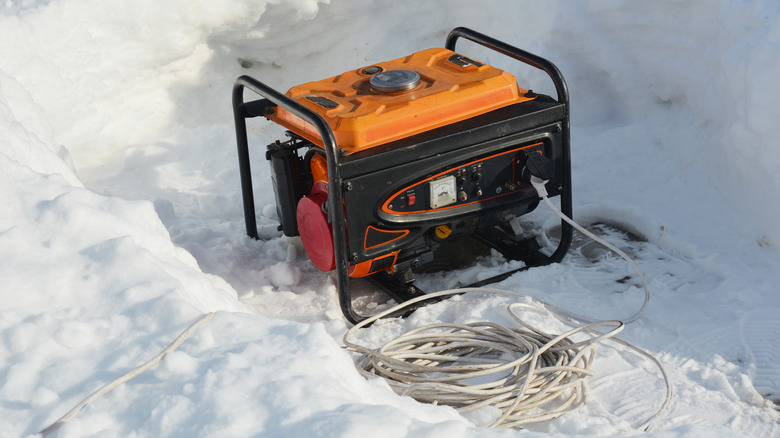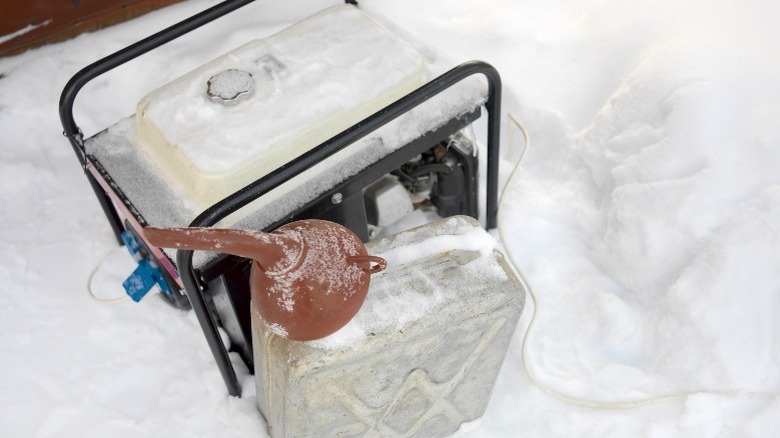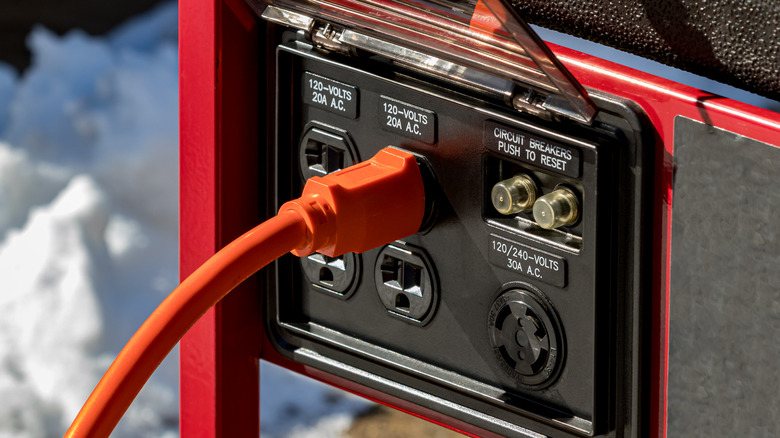How Cold Is Too Cold For A Generator To Run In Winter?
Power generators are a godsend for when nature reminds us who is boss and sends a nasty storm to leave us in the dark — figuratively and literally. While you can usually count on generators to deliver, unfortunately, there are times when your trusty machine decides not to cooperate.
While there are many reasons why generators might not power up, Professional Services says these problems are usually mechanical and should be easy to identify. Before doing anything, ensure that no cables are plugged into the generator, and then check its fuel and oil levels before moving on to the battery. You should also ensure that all its parts are clean and clog-free — so check for a dirty air filter, spark plug, carburetor, and fuel valve.
Unfortunately, the problem may be more challenging to fix when you're struggling with a generator in the wintertime. This is because freezing weather can turn your ordinarily reliable workhorse into a sluggish device.
Generators don't work well in extreme cold
Westinghouse warns that once temperatures fall past 40 degrees Fahrenheit, generators become less efficient because the different bits and pieces involved in making them run either change properties or become too cold to do their jobs properly. For instance, CPS says at that temperature, the efficiency level of your unit's battery falls to half what it usually is, meaning the best the generator can do is pump out half of the current it is capable of generating.
While both lubricating oil and gas have freezing points that are well below that of water, both can either thicken or become gel-like, which will also impact a generator's performance, per Westinghouse. Luckily there are things you can do to help you and your generator thrive this winter, no matter how cold it gets outside. But, as most of these measures are designed to be put in place before the cold weather comes, it's essential to ensure that your unit is primed and ready to support you when winter rolls around.
How to winterize your generator
Westinghouse suggests keeping your generator battery indoors and in a warm place, particularly when the cold begins to set in. It also advises you to keep your battery fully charged and ready to go, and to siphon out whatever gas might remain in the tank since old gasoline can damage its engine. The company even recommends that you change the type of engine oil you use when it gets cold because oil thickens as the temperature starts to fall. Westinghouse recommends a lightweight oil like SAE 5W-30 for use in extreme winter weather.
CPS also suggests you invest in a water jacket heater, which uses water to keep your generator at the temperature it needs to be in order to operate properly, which Diesel Generator Tech says is around 95 degrees Fahrenheit. Fun fact: Genesal Energy says extremely hot temperatures of over 104 degrees Fahrenheit can also stunt your unit's performance. Most importantly, both CPS and Westinghouse advise you to keep your operating manuals handy so that troubleshooting can be done with more ease.


